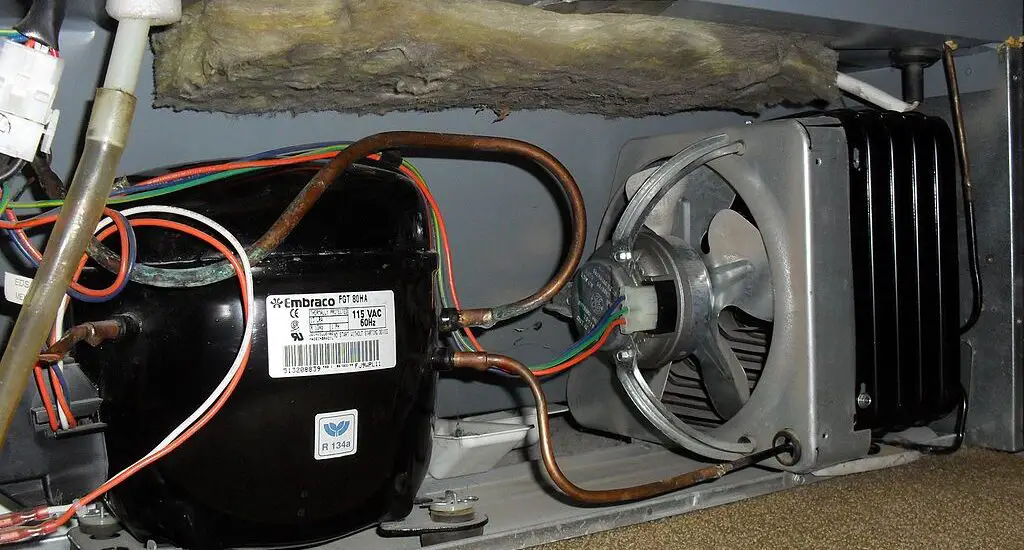Refrigeration compressor capacity control, have you given it much thought? It’s the proverbial engine under the hood of any cooling system, steering efficiency, and performance. Without proper capacity control, your system could be gorging energy or underperforming. It’s a bit like giving a car too much gas when it doesn’t need it – a waste, right?

Table of Contents
Key Concepts of Refrigeration Compressor Capacity Control
Think of refrigeration compressor capacity control like a symphony conductor, directing how hard the compressor works. It adjusts in response to changes in cooling load, harmonizing energy consumption and system performance. Aha! Kind of crucial, don’t you think?
Understanding Refrigeration Compressor Capacity
Compressor capacity refers to the amount of refrigerant your compressor can pump in a given time. Imagine it as the heartbeat of your refrigeration system – the rate needs to match the body’s needs. Too fast or too slow, and there’s trouble.
The Role of Compressor Capacity
Compressor capacity directly impacts the efficiency and performance of your refrigeration system. It’s like having a perfectly fitted gear for your bicycle – you need to get it just right for that smooth, energy-efficient ride.
Factors Influencing Compressor Capacity
Several variables can influence your compressor’s capacity – think of it as tuning a guitar or adjusting strings to get the perfect pitch. Factors like refrigerant type, compressor speed, and condensing temperature all play a role.
Types of Refrigeration Compressor Capacity Control Systems
You’ve got a few types of capacity control systems to choose from – like different breeds of dogs, each with unique characteristics, suited for various needs.
Discharge Valve Unloading
Discharge valve unloading is like a weight lifter adjusting the weights on his barbell according to his strength – it controls the capacity by changing the active volume of the compressor cylinders.
Practical Applications of Discharge Valve Unloading
Industries with constant cooling demands often use discharge valve unloading. It’s like always having a high demand for ice – you’d need a system that’s ready to go full-throttle, wouldn’t you?
Cylinder Unloading
Cylinder unloading is another clever way of managing compressor capacity. It’s a bit like a runner pacing themselves during a marathon, activating and deactivating cylinders according to cooling load.
Practical Applications of Cylinder Unloading
Cylinder unloading is often used in systems with widely fluctuating cooling demands. Picture a sprinter suddenly needing to change their pace – adaptable, right?
Variable Speed Control
Variable speed control is like adjusting the speed of a car in response to road conditions. It changes the compressor speed to match the cooling demand – pretty smart!
Practical Applications of Variable Speed Control
Let’s say you run a hospital with varied cooling requirements for different zones – labs, wards, and operation theaters. Variable speed control could be just what you need. Like a pro driver, it adjusts speed smoothly and efficiently.
Check out these other related articles…
Refrigeration Compressor Capacity: A Practical Guide
Refrigeration Compressor Valves: Comprehensive 411 Guide
Refrigeration Compressor Horsepower: The Ultimate 411
Refrigeration Compressor Lube Oil Properties: Expert Guide
Refrigeration Compressor Maintenance: Detailed 411 Guide
Choosing the Right Refrigeration Compressor Capacity Control System
Selecting the right refrigeration compressor capacity control system is a bit like shopping for shoes. You need the right size, style, and comfort level to match your needs. System requirements, efficiency, and cost are all factors to consider.
Maintenance and Troubleshooting of Refrigeration Compressor Capacity Control Systems
Maintaining and troubleshooting refrigeration compressor capacity control systems is akin to keeping your car in tip-top shape. Regular checks and timely fixes keep things running smoothly and ensure you’re getting the most out of your system.
Routine Maintenance Tips
Regular maintenance is like taking your car for routine servicing. Keeping tabs on pressure levels, temperature readings, and performing regular system checks can help you nip potential issues in the bud.
Common Issues and Their Solutions
Like your garden’s most persistent weeds, some issues seem to crop up no matter how well you maintain your capacity control systems. Fear not! Knowing what to look for and how to resolve these issues can keep your system in peak condition.
Unexpected Changes in System Pressure
Just as you wouldn’t want your car’s tire pressure to fluctuate unexpectedly, a well-run cooling system needs consistent pressure. If pressure levels are bouncing around more than a kangaroo in a field, it might be a sign of problems with your refrigeration compressor capacity control system.
Resolving this issue might require checking the system for leaks, ensuring the compressor isn’t overloaded, or examining the control valve for malfunction. Think of it as giving your car a good once-over after a particularly nasty pothole.
Temperature Variations
Temperature swings in your cooling system are like unexpectedly jumping into a cold swimming pool – a shock to the system. It can indicate problems with the refrigerant, compressor, or even the refrigeration compressor capacity control system itself.
Addressing this may involve checking the refrigerant levels, ensuring the compressor is functioning optimally, or troubleshooting the capacity control system. It’s akin to checking the pool’s temperature before diving in.
Increased Power Consumption
If your system is gobbling up more power than a teenager in front of a pizza, it’s a strong signal that something’s amiss with your capacity control. It’s akin to your car’s fuel consumption suddenly skyrocketing – a definite cause for concern.
The solution may lie in adjusting the capacity control settings, ensuring the system isn’t overloaded, or performing a general system check. It’s like tuning your car for optimal fuel efficiency.
Remember, while these solutions can resolve many common issues, it’s always best to consult with a professional if you’re uncertain. After all, we’d all love to be experts, but sometimes you just need to call in a pro!